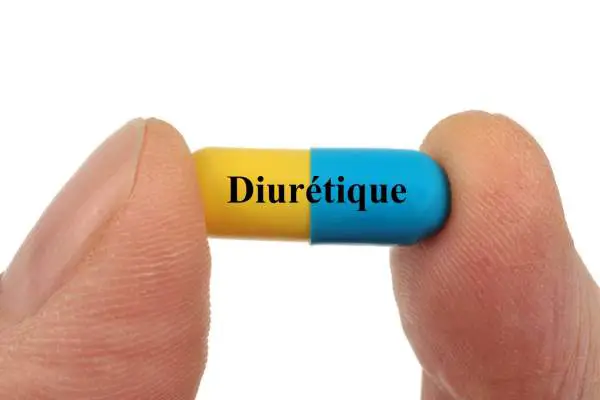Decaffeinated coffee is a healthy beverage that will provide most of the benefits you will get from regular coffee. People ask whether this beverage will have side effects similar to regular coffee.
Since most of the caffeine is removed from decaf coffee, the side effects are comparatively less. However, the decaffeination method will impact the beverage’s health benefits and side effects.
The Swiss water process is the safest and recommended decaffeination method because it does not use any chemicals, and the decaf coffee retains its flavor and most nutrients.
Is decaf coffee a diuretic like regular coffee?
Many people would like to know whether decaf coffee is diuretic. You have found the right article if you are also searching for it.
Since decaffeination removes most of the caffeine from decaf, it is not considered a diuretic beverage. In contrast, regular coffee contains more caffeine. It is a diuretic and will increase the excretion of water from your body as urine. Excessive consumption of decaf coffee may also result in diuretic effects.
Diuretic

Before understanding whether decaf coffee is diuretic, it is essential to know what diuretic means.
In short, a diuretic means an increase in the excretion of urine. Excessive urination will remove water from your body. Many food sources will promote urine excretion, which includes caffeine. The doctor will suggest diuretic tablets, also known as water pills, to cure kidney-related issues where the organ has a poor function in excreting urine.
Diuretics remove sodium and water from your body.
A Few Health Issues Treated Using Diuretics:
- Kidney stones
- Swelling of tissues
- Liver failure
- Heart failure
Side Effects of Diuretics:
- Dehydration due to excessive water excretion
- Headaches
- Dizzy feeling
- Muscle cramps
- Disorder of joints
- Impotence
Although the caffeine in coffee is mildly diuretic, drinking two to three cups daily will make you use the restroom frequently. This might seem inconvenient, hence why many people think of switching to decaf coffee.
Read along with the article to find out whether decaf coffee is diuretic.
Decaffeinated Coffee

You might have heard of decaffeinated coffee, which has become very popular, especially among caffeine-intolerant people.
Decaf coffee is manufactured by decaffeinating 100% Arabica coffee beans. This process helps remove 97% of the caffeine, so the beverage does not become caffeine-free. Decaf coffee will have around 3 mg of caffeine per cup, which is significantly less when compared to regular coffee.
You can use decaffeination methods like the swiss water process, carbon dioxide, methylene chloride, and ethyl acetate to remove caffeine.
The natural water process removes caffeine by soaking the coffee bean in water and filtering the extract using a carbon filter. This method will help retain most nutrients and remove around 99.9 % of caffeine.
According to the brand of decaf coffee and the decaffeination process, the caffeine content of the beverage will differ.
Regular Coffee Vs Decaf Coffee

Following are some differences between regular and decaf coffee.
| Regular Coffee | Decaf Coffee |
| One cup of regular coffee contains around 85 mg of caffeine. | One cup of decaffeinated coffee contains 2 to 3 mg of caffeine. |
| The pH of regular coffee is 4 to 4.5. | pH value of decaf coffee is 5, making it more acidic than regular coffee. |
| Contains more antioxidants. | Antioxidants in decaf coffee are 15% less than in regular coffee (some antioxidants are lost during roasting). |
| Rich in aroma and flavor. | The smell and taste of decaffeinated coffee may alter during decaffeination. |
| 300 mg of regular coffee leads to dehydration (diuretic effect). | Does not dehydrate the body. |
| Excessive caffeine reduces fertility. | Safe beverage during pregnancy. |
Is Decaf Coffee a Diuretic?

There are many reasons why people intend to switch to decaf coffee. Some of the main reasons are caffeine intolerance, insomnia, anxiety, digestive problems, and restlessness.
Frequent urine excretions are also another reason for switching to decaf coffee.
Compared to regular coffee, although decaf coffee has traces of caffeine, studies have found that it is not a diuretic. Hence, decaf coffee will not make you pee more.
Decaf beverages only contain 2 to 3 mg of caffeine per cup.
However, another point of view on the question is the decaf coffee diuretics. People argue that the decaffeinated beverage will still contain a small amount of caffeine since it cannot remove all the caffeine from the coffee beans.
These traces of diuretic compounds may cause mild diuretic effects. However, compared to regular coffee, the diuretic and the traces of caffeine in decaf coffee are negligible.
To obtain a similar diuretic effect, you might have to consume around 150 cups of decaf coffee, but in between, you will have to use the restroom often.
Note: Although decaf coffee may cause urine excretion, this beverage does not have the same diuretic effect as regular coffee.
How Can You Avoid Diuretic Effects Due to Decaf Coffee Consumption?

Removing at least 97% of the caffeine from regular coffee beans to produce decaf coffee is essential. According to the decaffeination method, the amount of caffeine left in decaf coffee will differ.
If you suspect the decaf coffee contains more caffeine, which may promote urine excretion, drink other fluids to prevent dehydration. Further additives, like sugar and sweetener, in your decaf coffee may also trigger the diuretic effect.
Hence, it is best to reduce or avoid including such additives.
Decaf Coffee is Not a Replacement Beverage for Water
Decaf coffee will help keep you fresh, but this beverage is not a water replacement. None of the liquids are water replacements. Instead, they are supplements.
Hence, it would help to drink plenty of water and decaf coffee to keep yourself hydrated. This is because drinking plenty of water is the best way to keep yourself hydrated. Imagine drinking 2 to 3 cups of decaf coffee daily.
This has nothing to do with your daily water intake. So never cut off the water since you are drinking beverages, which may result in dehydration.
Bottom Line
By reading the blog, you might understand that decaf coffee is not a diuretic. Since regular coffee is rich in caffeine, it will cause a diuretic effect, leading to frequent urine excretion.
In contrast, studies have found that this effect is not observed when the person consumes decaf coffee. Hence, the traces of caffeine in decaf coffee will not increase urine excretion.
If you feel inconvenienced running to the bathroom often due to the diuretic effects of decaf coffee, it is best to switch to an alternative like decaf coffee.
FAQS
Can Excessive Decaf Coffee Cause Diuretic Effects?
It may cause a mild diuretic effect if consumed excessively.
You must drink around 150 cups of decaf coffee to trigger diuretic effects due to caffeine, which is impractical. Hence, decaf coffee is not a diuretic.
How much Caffeine Consumption Triggers Diuretic Effects?
You must drink at least 5 cups of coffee (500 mg of caffeine) to observe a significant diuretic effect.
Can I Drink Decaf Coffee Dialy?
Yes, decaf coffee is also a healthy beverage that you can consume daily.
Check the method of decaffeination to avoid side effects due to chemicals.












